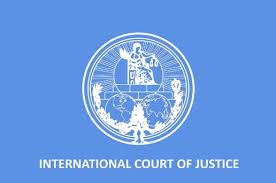Arbitration under international law
Arbitration under International Law is a method of resolving disputes between states (and sometimes between states and non-state actors such as corporations) without resorting to the use of force or litigation before a traditional court. It involves the parties agreeing to submit their dispute to an impartial tribunal whose decision is binding.
🔹 Definition
Arbitration in international law is a consensual process in which disputing parties agree to resolve their conflict by submitting it to arbitrators, whose decision (the award) is final and binding.
🔹 Legal Basis
Arbitration is grounded in:
Consent of the parties – Usually by treaty, contract, or special agreement (compromis).
Customary international law – Supports peaceful resolution of disputes.
Article 33 of the UN Charter – Lists arbitration as one of the means to settle disputes peacefully.
🔹 Key Features
Voluntary but binding
Neutral and flexible process
Parties choose arbitrators and procedure
Limited appeal – awards are final unless flawed procedurally or jurisdictionally
🔹 Notable Arbitration Cases
Alabama Claims Arbitration (1872) – US v. UK; helped establish state responsibility and modern arbitration.
Island of Palmas Case (1928) – Netherlands v. US; confirmed principles of effective control in territorial sovereignty.
South China Sea Arbitration (Philippines v. China, 2016) – Major UNCLOS case under the Permanent Court of Arbitration (PCA), though China rejected participation and outcome.
🔹 Institutions Involved
Permanent Court of Arbitration (PCA) – Based in The Hague, facilitates state and investor-state arbitration.
International Centre for Settlement of Investment Disputes (ICSID) – Part of the World Bank, handles investment disputes.
Ad hoc tribunals – Formed for specific disputes (e.g., Eritrea-Ethiopia Claims Commission).
🔹 Advantages
Neutrality
Flexibility and confidentiality
Expert decision-makers
Avoids politicization common in courts
🔹 Limitations
Enforcement may face resistance (especially if no strong enforcement mechanism exists)
State sovereignty concerns
Limited transparency (especially in ad hoc cases)
Non-participation (e.g., China in South China Sea case)
🔹 Comparison: Arbitration vs. Adjudication (e.g., ICJ)
| Feature | Arbitration | Adjudication (ICJ) |
|---|---|---|
| Consent | Always required | Required but can be by treaty or declaration |
| Choice of Judges | Parties appoint arbitrators | Judges are permanent, elected |
| Flexibility | High | Less flexible procedural rules |
| Confidentiality | Often private | Generally public |












comments